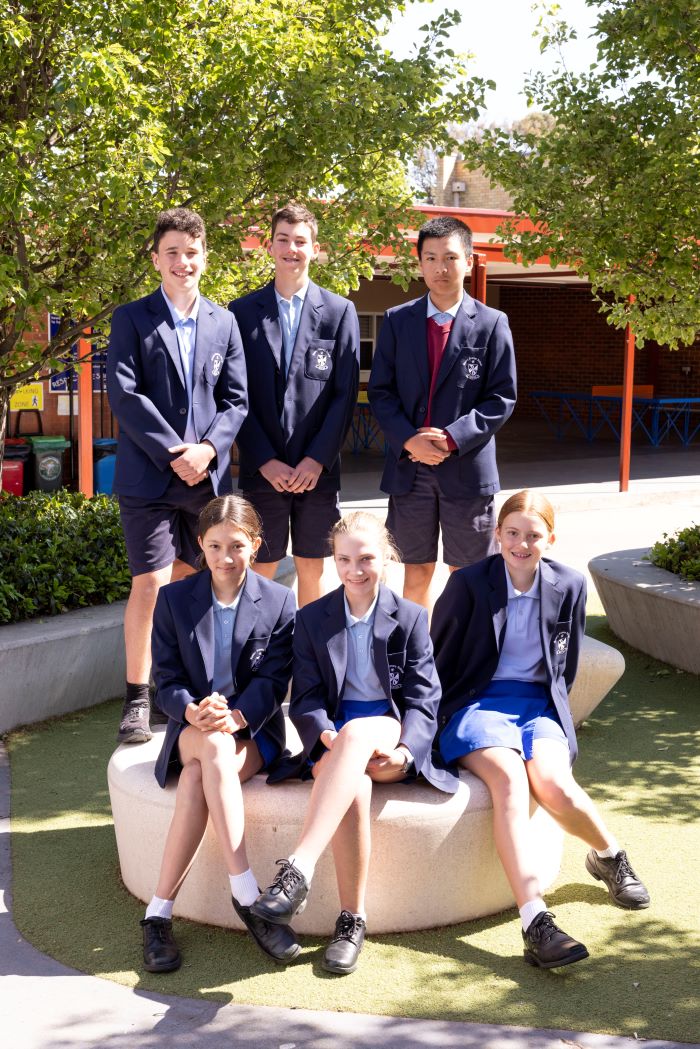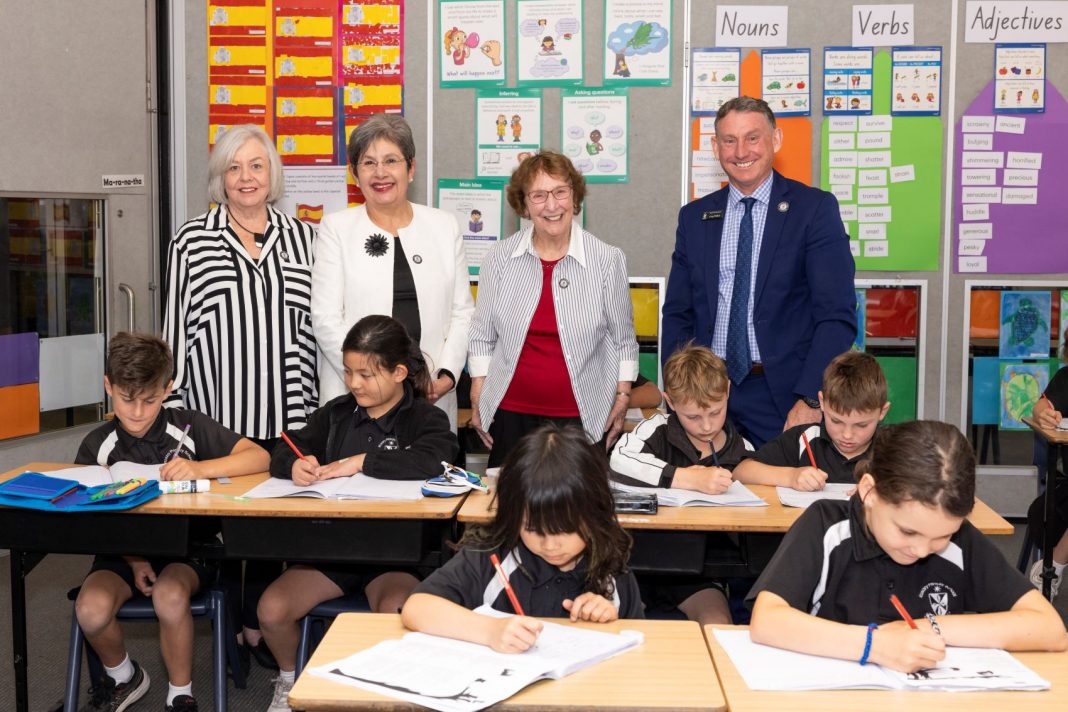For the past 60 years, the Rosary Primary School has been taking students on trips around the world without ever leaving the Watson building.
Walking into their classroom on the first day of the year, pupils travel to Tokyo, London, Rome or another faraway city, and their first lessons revolve around the room’s namesake.
“London had one of the biggest empires all over the world back in some time,” smiles Mitch, year six student.
“Athens started democracy,” says Zeno, another year six student.
This is the way it has been done since the school first opened its doors in 1963. Unsure of why this is the case, the former nuns didn’t want it changed nor do the teachers here today.
Year six students will be off to different schools in the new year but they won’t soon forget their primary school years, particularly the teachers who made it so special. Speaking about their science and history teacher, they say his approach is the most fun.
“He knows that we may not enjoy history and science, so he always makes it a lot more enjoyable by joking about it,” says Chloe.
Throughout their time at the school, they have come to know the other students and all their teachers well. They say the community within the school is one of the best things about it.
“All the teachers and students are really kind, it’s not a huge school so everyone knows everyone,” says Sophie.
The facilities, care and education provided have been the icing on the cake.
“There are so many activities you can do at lunch and recess; there are basketball courts, netball courts, handball squares, there’s plenty of play equipment,” says Chloe.
“We also have lots of clubs here – aeroclub, chess club, and we have music,” Mitch and Sophie chime in.
“And Kids lit quiz about books. The last thing you need to know is the school’s probably the best primary school,” smiles Zeno.

Rosary Primary was established by the Dominican Sisters in 1968 as a demonstration school for the Signadou Teacher Training College, what is now the Australian Catholic University. Run by the nuns who looked over the school, a lay principal wasn’t instated until 1985 during a shortage of nuns.
“At that stage, there were very few lay people in the [Catholic] teaching profession, but as the nuns and the religious people disappeared, the lay people came in … I think I was the second lay teacher to come to a school, the other was over in Lyneham,” says Ms Meg Clarke, first lay principal, 1985-1995.
Although the previous teaching college’s demonstration lessons may have dwindled (some rooms still have glass separators), the school’s dedication to education hasn’t changed. Current principal Greg Walker says the school has remained at the cutting edge of education theory and practice.
Now their approach is in line with the explicit teaching ideals; a high impact, teacher-led style of teaching based on the foundations of English, maths, and other subjects, Mr Walker says.
“It’s not necessarily a return to basics; it’s a way we touch base with students and make sure they understand the content being taught and that content gets into their long-term memory so they can be taught new content. We do daily reviews, we make teaching very explicit, so the children are responding to the learning one-to-one in the classroom,” he says.
Ms Clarke says that teachers haven’t always been front and centre in the classroom, and even today you will see schools where they aren’t.
“We weren’t encumbered by dozens of different things brought into the curriculum, there was a standard curriculum and you taught to that. They were bringing concepts with regards to reading and things like that,” she says.
The previous staff believe the community the school creates sets it apart from other primary schools in the region. Mr Waler is in awe of the way that everyone works together with a focus on service, community and prayer that makes it so special.
“There is a real strong sense of belonging and I have found that amongst the students, they would speak to us about anything, if there was a problem they would come. The parents were the same, they belonged to Rosary, and I know so many of our students have brought their children back,” says Moira Sutch, principal from 1996 to 2001.
“Like people come to the school, Greg chooses who comes to the school. We have that advantage; you get a new teacher, you keep selecting people like you with similar ideas,” says Ms Clarke.
With an interview and application process, Mr Walker says potential parents ask what a Catholic education looks like for their child.
“The focus on learning and pastoral care is still there … They learn about the Catholic ethos and what a Catholic school provides and they know they’re all good values,” Mr Walker says.
The families applying don’t have to be of the Catholic faith; in fact, around 40 per cent of enrolments identify with other religions. He says the parents come to Rosary seeking a certain standard.
“I think probably the advantage we have is that we can articulate our values, standards and vision,” says Maureen Doszpot, principal from 2007 to 2016.
“We’re able to explicitly talk about those values … We can talk about our visions and our faith, not that everyone is from a religious background, but they know what we can bring to their child’s education,” says Mr Walker.
It is not just the parents who seek out the school, the staff do, too. Many have left only to later find their way back to Rosary, knowing it is the place they want to be.
“The history here, the sense of belonging, that Dominican spirit that is still here, the veritas [truth] is the Dominican motto which is the school motto … I think all of us here, it doesn’t matter who is here, the school is strong and exists beautifully,” smiles Ms Doszpot.
For more about Rosary Primary School, visit rosary.act.edu.au
Canberra Daily is keen to hear from you about a story idea in the Canberra and surrounding region. Click here to submit a news tip.



